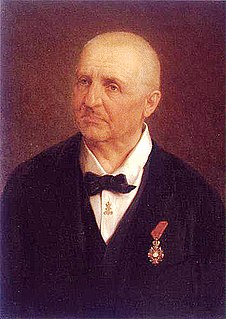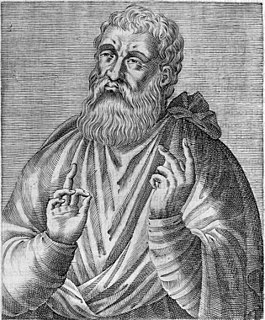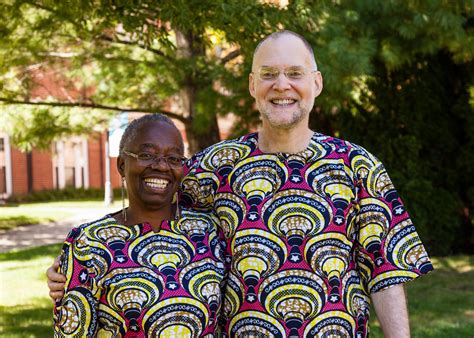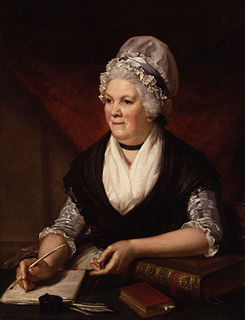A Quote by John Stott
Although we have responsibilities to others, we are primarily accountable to God. It is before him that we stand, and to him that one day we must give an account. We should not therefore rate human opinion too highly.
Related Quotes
Paul indeed wanted to reveal the unknown God to the philosophers and then affirms of Him, that no human intellect can conceive Him. Therefore, God is revealed therein, that one knows that every intellect is too small to make itself a figuration or concept of Him. However, he names him God, or in Greek, theos.
To be right, a person must do one of two things: either he must learn to have God in his work and hold fast to him there, or he must give up his work altogether. Since, however, we cannot live without activities that are both human and various, we must learn to keep God I everything we do, and whatever the job or place, keep on with him, letting nothing stand in our way.
If some should accuse us as if we held that people born before the time of Christ were not accountable to God for their actions, we shall anticipate and answer such a difficulty. We have been taught that Christ is the first-begotten of God, and we have declared him to be the Logos of which all mankind partakes. Those, therefore, who lived according to reason (logos) were really Christians, even though they were thought to be atheists, such as, among the Greeks, Socrates, Heraclitus and others like them.
Every subject's duty is the King's; but every subject's soul is his own. Therefore, should every soldier in the wars do as every sick man in his bed, wash every mote out of his conscience; and dying so, death is to him advantage; or not dying, the time was blessedly lost wherein such preparation was gained; and in him that escapes, it were no sin to think that, making God so free an offer, He let him outlive the day to see His greatness and to teach others how they should prepare.
If, therefore, man has come into the world to search for God and, if he has found Him, to adhere to Him and to find repose in adhering to Him-man cannot search for Him and attain Him in this sensible and corporeal world, since God is spirit rather than body, and cannot be attained in intellectual abstraction, since one is able to conceive nothing similar to God, as he asserts-how can one, therefore, search for Him in order to find Him?
Through adoration, the Christian mysteriously contributes to the radical transformation of the world and to the sowing of the Gospel. Anyone who prays to the Savior draws the whole world with him and raises it to God. Those who stand before the Lord are therefore fulfilling an eminent service. They are presenting to Christ all those who do not know him or are far from him: they keep watch in his presence on their behalf.
Who are we, as we stand before the child Jesus? Who are we, standing as we stand before today's children? Are we like Mary and Joseph, who welcomed Jesus and cared for him with the love of a father and a mother? Or are we like Herod, who wanted to eliminate him? Are we like the shepherds, who went in haste to kneel before him in worship and offer him their humble gifts? Or are we indifferent?


































